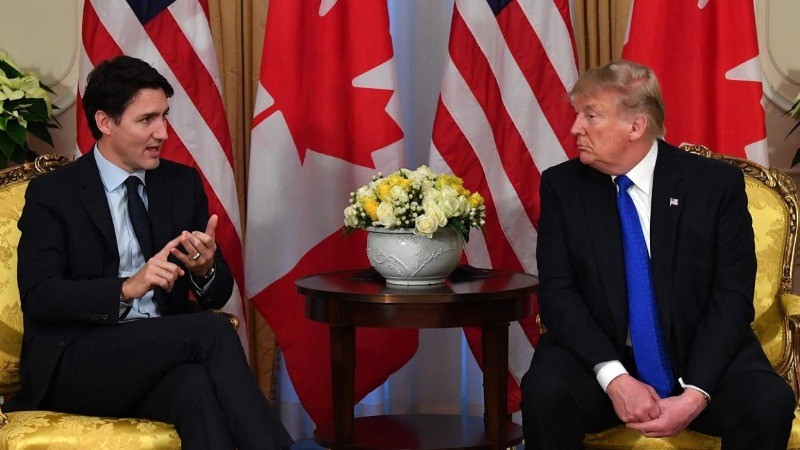
US President-elect Donald Trump is escalating political turmoil in Canada by mocking Prime Minister Justin Trudeau at a time of internal crisis, further complicating Trudeau's already difficult situation.
Trump’s recent comments about Canada and its leadership highlight a deepening rift, as he took to social media to mock Trudeau, calling him the “governor of the 51st state” in reference to Canada’s relationship with the United States. This taunt came just as the Canadian Prime Minister faces a political storm, including the unexpected resignation of Deputy Prime Minister Chrystia Freeland.
On Wednesday, Trump posted on Truth Social, questioning why the US "subsidizes Canada to the tune of over $100,000,000 a year" and suggesting that "Many Canadians want Canada to become the 51st State" to benefit from lower taxes and military protection. He said in Fun, “I think it's a great idea... the 51st State!”
Trump has long hinted at the idea of Canada joining the US, a notion he first raised informally with Trudeau during a Thanksgiving dinner years ago. However, this latest comment comes at a particularly fragile moment for Trudeau, whose government is struggling with the fallout from Freeland’s resignation.
Freeland, who held key roles as both Deputy Prime Minister and Finance Minister, resigned on Monday, writing a letter describing Canada’s political environment as “toxic” and calling for stronger leadership. Her departure is a significant blow to Trudeau's administration, as she was considered a critical figure in negotiations with the US.
Trump was quick to react to Freeland's resignation, labeling her as “totally toxic” in a previous post. His remarks have stirred further tension, adding an external pressure to the challenges Trudeau is already facing within his own government.
In Ottawa, Trudeau attempted to maintain composure, addressing his party’s holiday gathering on Tuesday. “Like most families, sometimes we have fights around the holidays,” he said, acknowledging the growing discord following Freeland’s departure.
While Trudeau sought to downplay the situation, political analysts believe Freeland’s resignation signals deeper cracks within his government. With critics increasingly questioning his handling of both domestic and international issues, the loss of such an influential ally may embolden Trudeau’s opponents.
As this political crisis continues to unfold, Trump’s taunts add an unusual external dimension to Canada’s internal struggles. For Trudeau, the immediate priority is to stabilize his leadership and restore confidence within his party and the public.